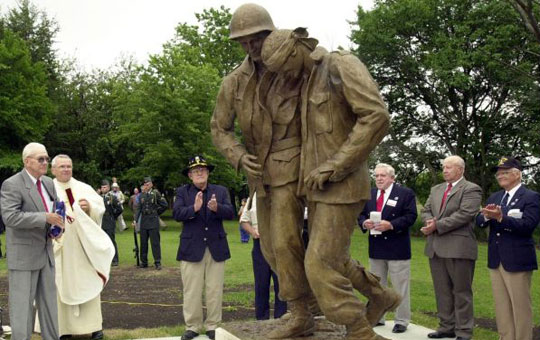A difficult part of life is getting those calls that no one wants to get—calls informing us that someone we know has passed on.
The longer we live, the frequency of those calls increases, but that doesn’t mean they ever get any easier. An old friend, a recent acquaintance, a voice from the past, a face that emerges from our memories, is now gone. This person has been taken from us. Sometimes we know it was eminent; but sometimes we are totally taken by surprise.
We pause to reflect about our own memories of the person who has past, or engage in conversation with a mutual acquaintance. Inevitably, the comments reflect both good and bad experiences and mutual memories of the person. Sometimes those memories are very accurate and complementary, and sometimes they are not. One thing is certain: Like them, all of us be talked about, and we will be remembered.
What is said about us constitutes our legacy—the sum total of who we were and what we did. Our legacies are unavoidable—but not unchangeable—and we can impact them greatly no matter our age.
Consider the relatively unknown legacy of a true American hero. Father Emil Kapaun was a Catholic priest from rural Kansas who served as U.S. Army chaplain during the Korean War. He was captured during the Battle of Unsan and taken prisoner by Chinese soldiers.
Suffering in squalid conditions on an 87-mile march to the prison, Kapaun ministered to his fellow soldiers. He encouraged soldiers who were healthy enough to help carry their wounded comrades. Once in camp, he raised morale, made improvements for his fellow prisoners, gave away his food, and served as a peacemaker. Kapaun died of malnutrition and pneumonia in camp on May 23, 1951.
On April 11, 2013, dozens gathered to remember Kapaun’s legacy as President Obama posthumously awarded him the Medal Of Honor. Among the attendees were nine Unsan POWs, high-ranking officials from the Catholic Diocese, and Kapaun’s relatives.
President Obama told the story of Kapaun running over 200 yards outside of a shrinking defensive perimeter to bring back wounded soldiers to waiting medics, despite heavy enemy fire. Kapaun allowed himself to stay behind and be captured by the enemy in order to care for American soldiers.
Some present at the ceremony served with Kapaun in combat or suffered with him in the prison camp. There, they said, he passed out handfuls of birdseed, hot water, or stolen food. Most importantly, he was a messenger of hope and encouragement, despite the nightmarish conditions.
President Obama said the guards mocked Kapaun, removed his clothes, and made him stand in the freezing cold for hours. Yet, he never lost his faith.
When President Obama placed the Medal of Honor around the neck of one of Kapaun’s relatives, the room was filled with emotion. President Obama said Kapaun left an enormous legacy as “an American soldier who didn’t fire a gun, but who wielded the mightiest weapon of all: a love for his brothers so pure that he was willing to die so that they might live.”
So what does legacy have to do with this holiday season? Well, perhaps one of the greatest lessons on legacy can be found in a fictional Christmas classic.
Known throughout the world, Charles Dickens’ beloved “A Christmas Carol” is the story of miserly Ebenezer Scrooge. Scrooge amassed a fortune, yet he lived in misery with his riches. Hour by hour, day by day, he silently built a legacy of greed, selfishness, contempt for mankind, and loneliness. He was writing the script for what everyone would say about him.
Then a miracle happened. On Christmas Eve, Scrooge was visited by three spirits who showed him his life from the perspective of those around him. He saw that people despised him, feared him, gossiped about him, and chose to leave him isolated and alone.
So powerful were the messages from Scrooge’s supernatural visitors that he immediately turned his life around and changed his legacy. He was ultimately remembered for a life well lived and a remarkable legacy filled with good deeds, compassion for the poor, and a desire to help the entire community. Imagine the good words that must have been spoken of Scrooge at his funeral.
That is the remarkable thing about our legacy: It can always be changed. If we can find the resolve, we can positively shape our legacy every hour, every day, and every year of our lives. It can be improved upon with every single interaction—large or small—we have with others, be it large or small.
This holiday season is the perfect time to review our legacy in the making. Let us make it a legacy of light and love by enhancing the lives of everyone we meet, and by caring more about others than we do about ourselves.
